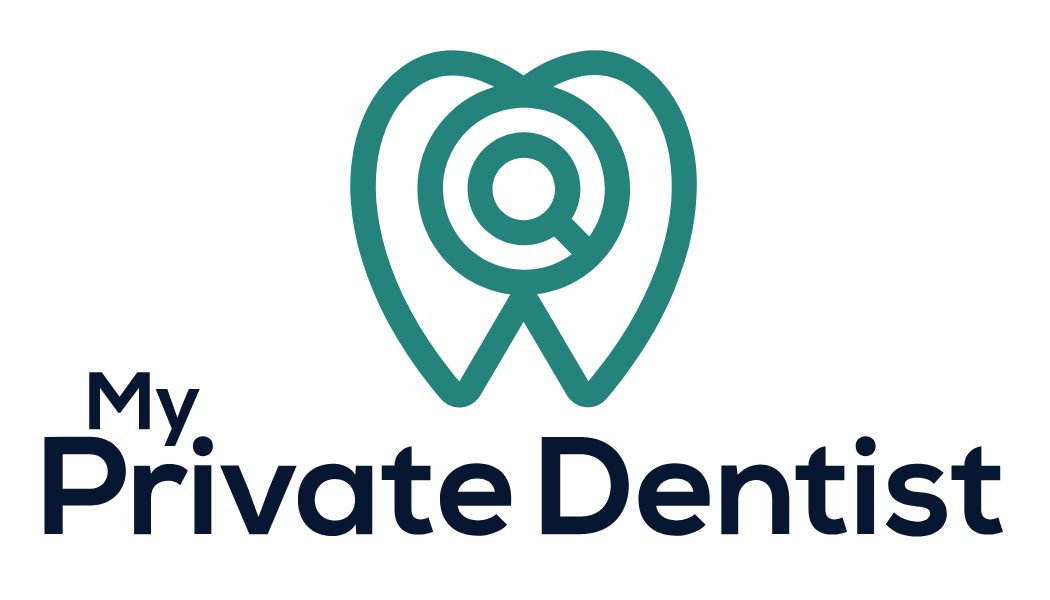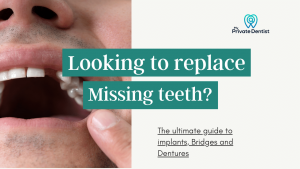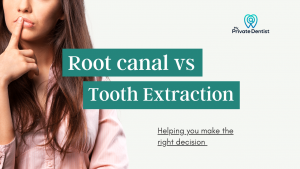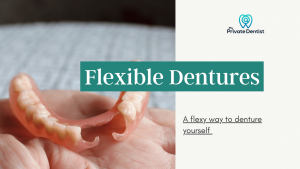Here are my recommendations for the best mouthwash for gingivitis in 2024.
As a dentist, I always stress the importance of maintaining good oral health. Gingivitis, or early-stage gum disease, is a common problem caused by plaque build up from ineffective oral cleaning. If left untreated, it can lead to more serious dental problems. One of the best ways to prevent and treat gingivitis is with an excellent oral hygiene regime. For most people this means a thorough daily brushing and flossing technique. If you’re looking for an extra defence, consider using a specialised mouthwash also.
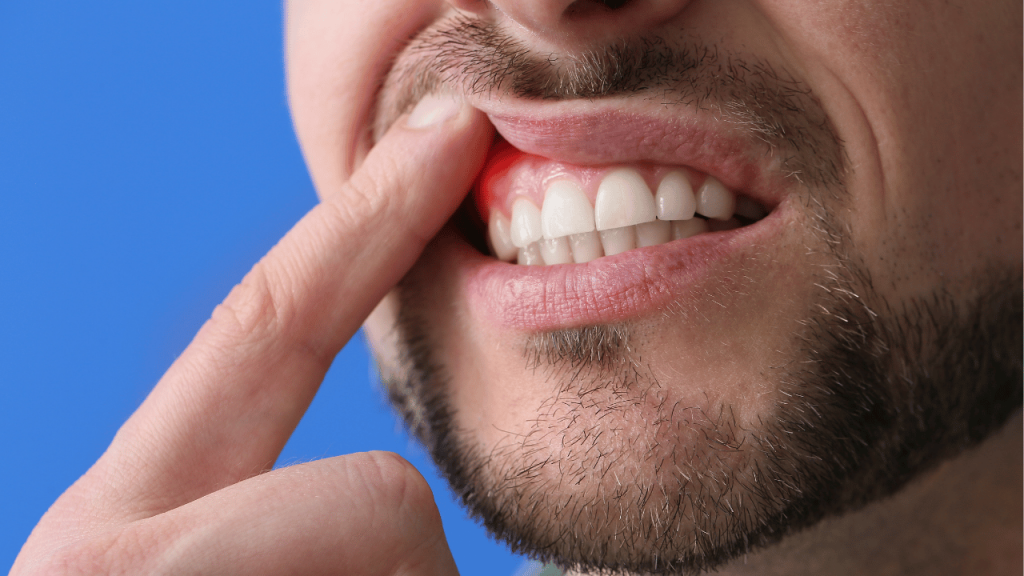
There are so many mouthwashes available on the market, and they aren’t all suitable to effectively deal with gingivitis. Look for antiseptic ingredients such as chlorhexidine (CHX) and cetylpyridinium chloride (CPC), which actively kill gingivitis-causing-bacteria, and prevent it’s regrowth.
I recommend Vitis Gingival as the best mouthwash for gingivitis. It contains hard working anti-gingivitis ingredients; CPC and zinc lactate to help treat gum disease and prevent further flare ups. It is gentle enough to be used as a daily mouthwash, and leaves your mouth feeling clean and fresh.
But Vitis Gingival is not the only mouthwash that can help with gingivitis. In this article, we will also discuss other top picks, so you will be sure to find the right one for you.
The Best Mouthwash for Gingivitis
Why trust us? After helping thousands of patients over the last 10 years, we know what works. We tell you what the gimmicks are, so you can get the best advice and products that are truly value for money.
After extensive research and review, we have carefully selected the best mouthwashes for gingivitis in 2023.
Our Top 5 Picks
Best overall mouthwash for gingivitis – Vitis Gingival
Best intensive mouthwash for gingivitis – Curasept ADS Mouthwash 0.2%
Best mouthwash for severe gum flare-ups – Colgate Peroxyl
Best mouthwash for sensitive gums – Gengigel Mouthrinse
Best natural ingredients mouthwash for gingivitis – Nature’s Answer Periobrite
Best Overall Mouthwash For Gingivitis
Vitis Gingival The Ultimate Daily Gum Care Alcohol Free Mouthwash
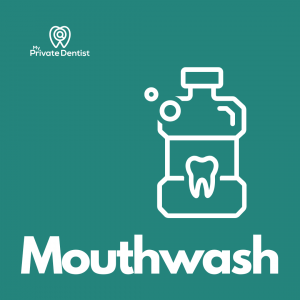
Anti-gingivitis Ingredients:
Cetylpyridinium chloride (CPC) – a powerful antiseptic
Permethol -reduces gum bleeding, sensitivity and inflammation.
Panthenol (pro-vitamin B5) – reduces inflammation
Zinc lactate -reduces gum bleeding. Increases antiseptic effect of CPC
Why our dentists like this mouthwash:
Vitis gingival is specifically formulated to target and prevent gingivitis. It contains key active ingredients that destroys the bacteria in plaque that causes gum disease, as well as preventing it from forming again. It’s useful for people at a higher risk of developing gum disease such as smokers, pregnant women and diabetics.
Unlike some other antiseptic mouthwashes, Vitis Gingival mouthwash is gentle enough for long term use, and so is a great addition to your daily cleaning routine. It won’t stain your teeth or tongue, and there aren’t any known risk of allergens.
Pros
Alcohol free
Pleasant taste
Suitable as a daily mouthwash for long-term use
Doesn’t stain your teeth
Cons
Not easily available in supermarkets
Tips for use:
Rinse with 15 ml of VITIS Ginigival Mouthwash without diluting for 30 seconds.
Spit out and do not swallow
For best results, do not rinse with water and avoid eating or drinking immediately after use.
Best Intensive Mouthwash for Gingivitis
Curasept ADS 220 Mouthwash 2.0%

Anti-gingivitis Ingredients
Chlorhexidine Digluconate (CHX) 0.2%: Gold standard antiseptic recommended by dentists
Why our dentists like this mouthwash:
Curasept mouthwash contains chlorhexidine: an ingredient widely recommended by dentists as an effective and reliable antiseptic for use against active gum disease [1]. It is recommended for short term use (1-2 weeks) to assist in treatment of multiple oral conditions including gingivitis, periodontitis, receding gums, mouth ulcers, and after oral surgery.
A popular chlorhexidine mouthwash is Corsodyl, which has proven benefits in aiding the healing of gum inflammation and preventing gum disease (when used as an addition to brushing and flossing). However, patients don’t often like using it, as it can cause a brownish discolouration to teeth when used over time, and has an unpleasant taste.
Curasept ADS is a chlorhexidine based mouthwash, with a patented anti discolouration system (ADS). It ensures all the antiseptic benefits of the key ingredient chlorhexidine, but with markedly reduced staining compared to Corsodyl.
I like that Curasept ADS is alcohol free too, as alcohol is a potential gum irritant, and can cause dry mouth.
Warning: Risk of allergy. Do not use if you have had an allergic reaction to any ingredients, or are prone to allergy of other medications. The risk of allergy is rare, but can be serious.
Pros
Anti-Discolouration System (ADS) means reduced staining compared to other CHX based mouthwashes
Strong antiseptic mouthwash
Suitable for more advanced gum disease
Alcohol free
Pleasant taste
Cons
Suitable for short term use only
May still cause some discolouration over time, though much less than other CHX mouthwashes
Risk of allergy
Not compatible with some ingredients in toothpaste, avoid use for at least 30 mins after brushing
Not suitable for under 12s
Tips for use
Advised for 2 weeks intensive use
10ml 2x a day for 2 weeks, do not dilute
Best Mouthwash For Severe Flare Ups
Colgate Peroxyl

Anti-gingivitis Ingredients:
1.5% hydrogen peroxide: an oxidising antiseptic
Why our dentists like this mouthwash?
Colgate Peroxyl works in a unique way, compared to the other mouthwashes reviewed, and is often recommended as an effective short term treatment for severe flare gum flare ups. The active ingredient hydrogen peroxide causes a rapid release of oxygen which has a powerful antibacterial effect on anaerobic bacteria. Anaerobic bacteria is often associated with more severe gum conditions such as acute ulcerative gingivitis- a painful gum infection.
Rinsing with mouthwash in general, helps to remove debris from hard to reach areas of the mouth. Peroxyl has the added benefit of promoting healing and relieves the discomfort of sore gums.
Pros
Alcohol-free
Targets stubborn anaerobic bacteria to tackle severe gum flare ups
Cons
For short term use only
Hydrogen peroxide is a potential allergen
Poss side effect includes black stained tongue/feeling of hairy tongue
Not safe for use for children under 7 years
Tips for use
Adults and children 12+ should rinse 10 ml (half a capful) for one minute, then spit out.Children between 6 – 12 years old should use only under the supervision of an adult. The duration of the treatment should not exceed 7 days.
Best Mouthwash For Sensitive Gums
Gengigel Mouthrinse

Anti-gingivitis ingredients
Sodium Hyaluronate: gum healing and repair
Xylitol: prevents plaque accumulating on tooth surface and limits bacterial growth
Why our dentists like this mouthwash:
The main active anti-gingivitis ingredient in Gengigel mouthrinse is hyaluronon. It is found naturally in the body in healthy gum tissue, and supports tissue healing. Advised for daily use, gengigel helps to soothe inflammation and speed up healing. It is useful not only for gingivitis, but is also suitable to help with generalised conditions such as sore burning mouth syndromes, dry mouth and regular mouth pain or irritation.
Pros
Safe to use for children aged 7+ and pregnant women
No known drug interactions or side effects
Gluten free- suitable for coeliacs
Non staining
Gentle- no burning/stinging sensation after use
Pleasant tasting
Cons
More expensive than other anti-gingivitis mouthwashes
Tips for Use
Rinse for 1-2- minutes, up to 3-4 times daily, at an alternative time to teeth brushing.
Do not eat or drink for 30 mins after use
Best Natural Ingredients Mouthwash for Gingivitis
Nature’s Answer Periobrite

Anti-gingivitis Ingredients:
Phytoplenolin: studies suggest promotes cell vitality
Folic acid: reduces gum inflammation and bleeding
Coenzyme Q10: to help aid gum repair
Essential oils: thymol, eucalyptol, cinammon, clove – prevent growth of bacteria
Why our dentists like this mouthwash:
Formulated by a dentist, Nature’s Answer Periobrite offers a natural alternative with essential oils to help combat gum disease and promote good oral health. It’s safe to use as a daily mouthwash, and as it is alcohol and SLS-free avoids use of potential allergens. It naturally moistens gums, and soothes irritation, whilst promoting healing.
Pros
Alcohol free
All 100% natural ingredients
Available in a variety of flavours: Wintermint, Coolmint, Cinnamint
Cons
Expensive
Not available in UK supermarkets
Medicinal taste
TIps for use:
After brushing, rinse for 30-60seconds with 2 capfuls of mouthwash. Do not dilute. Use twice daily.
Buying Guide: What To Look For In A Mouthwash For Gingivitis
If you have gingivitis, a mouthwash can be a useful addition to your daily mouth cleaning routine. But not all mouthwashes are suitable, and it is important to choose one with active anti-gingivitis ingredients, that will specifically target the bacteria in plaque that causes gingivitis. Mouthwashes formulated for teeth whitening, sensitive teeth or lubricating dry mouth are unlikely to help with gingivitis symptoms. Instead consider an antiseptic mouthwash for short term use to treat active gum disease, or a plaque inhibiting/preventative mouthwash for daily protection to keep gingivitis at bay.
In this buying guide I will discuss the benefits of a mouthwash for gingivitis, and which ingredients you should look for on the label.
Antiseptic Active ingredients: Chlorhexidine (CHX), Hydrogen Peroxide
Dentists commonly prescribe chlorhexidine to help patients manage gingivitis and periodontal disease. It is a gold standard antiseptic, that is advised for short term use, 1-2 weeks, as an effective immediate management of gingivitis causing bacteria in plaque. If gums are sore, and brushing is difficult antiseptic mouthwashes, such as chlorhexidine are particularlty effective.
There are some common side effects to be mindful of with chlorhexidine. It does stain teeth and gums over time, though some formulations include anti-discolouration systems to help reduce this effect. It can also cause temporary dry mouth, and a burning sensation when used- though this will stop when no longer using [2].
Hydrogen peroxide contains an oxidising agent, and this is also very effective for managing painful gum condition, whilst you’re waiting to see the dentist. Ulcerative gingivitis, or trench mouth, is an advanced form of gum disease, where gums bleed, hurt and swell. Hydrogen peroxide targets anaerobic bacteria and can reduce symptoms.
If you have gingivitis, and are experiencing sore, bleeding gums, consider using an antiseptic mouthwash for 1-2 weeks that contains chlorhexidine, or hydrogen peroxide to help manage symptoms.
They are only intended as a short term treatment, and not suitable for long term use.
Plaque inhibiting ingredients: Cetylpyridinium Chloride (CPC), Essential Oils, Zinc
Plaque inhibiting mouthwashes contain active ingredients that prevent plaque building up and sticking to teeth surfaces. When added to your daily oral cleaning routine, they are very effective for helping to treat and prevent developing gingivitis. It is important that to understand that using the mouthwash alone will have limited benefits. Plaque inhibiting mouthwashes are intended to be use in ADDITION to twice daily brushing, and regular interdental cleaning.
It is true that CPC mouthwashes are less effective than CHX at reducing plaque and gingival inflammation, however it is more suitable for long term use, and is still very effective. They are more gentle than antiseptic mouthwashes such as CHX, is suitable for use during pregnancy, and has fewer side effects. containing ingredients Essential oils also help with mouth freshness.
Zinc is found naturally throughout the body, including in saliva and teeth. It is an effective antibacterial preventing plaque and calculus formation, and reducing bad breath.
Natural Ingredients
If you are looking to use more natural ingredients, consider the anti-plaque properties of plant and herb extracts in mouthwash. Studies suggest that licorice extract and turmeric have significant antibacterial properties and can be beneficial in preventing gingivitis, when used in addition to regular teeth brushing and flossing [3]. Long-term studies are still required to be able to fully recommend their use. However, they do serve as a promising alternative for those that want a natural herbal option for gingivitis.
Alcohol-free
While some mouthwashes contain alcohol, they can be quite harsh on sensitive gums and might cause some irritation. I always recommend alcohol-free mouthwash to my patients. Often thought of as an active ingredient in mouthwash, it can cause the burning sensation felt when rinsing your mouth and can be unpleasant. Using mouthwashes with alcohol can cause symptoms of dry mouth over time.
Alcohol is a potential carcinogen, though studies suggest no association between use of mouthwash containing alcohol and oral cancer risk [4]
Instead, choose a gentle, alcohol-free formula for your mouthwash.
Anti-inflammatory Ingredients
Ingredients like aloe vera or chamomile can have anti-inflammatory properties, soothing the gums and helping to reduce redness and swelling.
Fluoride
The primary benefit gained from fluoride is in the prevention of dental decay, or caries. It works to strengthen tooth enamel and prevent cavities. Some mouthwashes contain fluoride to provide additional protection for your teeth. If you’re at high risk of developing tooth decay, then you should absolutely consider a mouthwash with fluoride in it for it’s anti-cavity properties.
It is also recommended if you’re undergoing orthodontics, or are wearing braces [5]. This is because appliances such as braces that are attached to your teeth can make brushing effectively more difficult, and hence increase your chances of developing decay.
Fluoride is often found in toothpaste and mouthwash in several different forms, including sodium fluoride and stannuous fluoride. Stannous fluoride in mouthwash, has some added benefits for preventing gingivitis, as well as preventing tooth decay [6].
As a general rule though, if you’re using a fluoride toothpaste twice daily everyday, using a mouthwash with fluoride is not essential, and is not recommended for use by children under 7.
Non-staining Formula
Some mouthwashes, particularly those containing chlorhexidine, may cause staining of the teeth over time. The risk of this is reduced if using it for only a short period of time, however if this is a concern for you, opt for a mouthwash with a non-staining formula.
Other Things To Consider
Consider the convenience of the mouthwash’s packaging and application. Some come with easy-to-use bottles, pump dispensers, or pre-measured cups for accurate dosing.
Choose a flavour that you enjoy, whether it’s minty or non-minty, fruity, or plain. This will encourage you to use the mouthwash regularly as part of your oral hygiene routine.
Remember that while a mouthwash can be beneficial, it should not replace regular brushing and flossing. Good oral hygiene practices, along with routine dental check-ups, are crucial in managing and preventing gingivitis effectively. If your gingivitis symptoms persist or worsen, seek professional advice from your dentist.
Home remedies: Salt Water
Salt water is known for its healing properties. Dentists often advise salt water rinsing after an extraction, as it has mild antibacterial properties to speed up wound healing and reduce inflammation [7]. Mix a teaspoon of salt in a glass of warm water and rinse your mouth with it daily.
Frequently Asked Questions
What is Gingivitis?
Gingivitis is a common and mild form of gum disease (periodontal disease) that causes irritation, redness, and swelling of your gums. It is usually caused by poor oral hygiene habits that allow plaque—a sticky film of bacteria—to build up on the teeth and harden. If left untreated, gingivitis can lead to more severe forms of gum disease, known as periodontitis, which can cause tooth loss and other dental problems.
Signs that you may have gingivitis include:
Bleeding Gums: Gums that bleed easily, especially during brushing or flossing, can be an early sign of gingivitis.
Red/Swollen Gums: Inflammation caused by gingivitis can lead to swelling and tenderness of the gums.
Receding Gums: As gingivitis progresses, the gums may start to pull away from the teeth, creating spaces called pockets.
Bad Breath: Bacteria in plaque release toxins that can cause a persistent bad odour in your mouth.If you suspect you have gingivitis or are experiencing any of these signs, it’s essential to see your dentist for a proper evaluation and treatment plan. Early intervention can help prevent the condition from worsening and protect your oral health.
Why Are Your Gums Bleeding?
Sore, bleeding gums could be an indication that you have gum disease, or gingivitis. The main risk factors include:
- Poor oral hygiene
- Very crowded teeth that are difficult to clean
- Things in your mouth that can trap plaque and be difficult to clean such as braces, dentures or fillings with poor margins.
- Dry mouth
- Smoking
- Poor nutrition, such as low vitamin C
What Is The Treatment For Gingivitis?
The good news is that gingivitis is reversible with appropriate treatment and improved oral hygiene. Here are some steps typically recommended for treating and preventing gingivitis:
- Improved Oral Hygiene: The most crucial step is to improve your oral hygiene practices, including:
- Brushing: Brush your teeth at least twice a day for two minutes each time. Use a soft-bristled toothbrush and fluoride toothpaste. There are specific toothpastes for gingivitis too, read about them here. Brush gently along the gumline and in circular motions to remove plaque effectively.
- Flossing: Floss daily to clean between teeth and remove plaque and food particles that your toothbrush cannot reach. You can improve your flossing technique by reading the article linked.
- Interdental Cleaning: Consider using interdental brushes or dental picks to clean between teeth if flossing is challenging or uncomfortable.
- Regular Dental Check-ups: Visit your dentist or dental hygienist regularly for professional dental cleanings and check-ups. Professional cleanings can remove hardened plaque (tartar or calculus) that cannot be removed by regular brushing and flossing.
- Mouthwash: Using an antimicrobial mouthwash can help reduce the bacterial load in your mouth and support your oral hygiene efforts. Look for mouthwashes with active ingredients like chlorhexidine or essential oils.
- Healthy Lifestyle: Avoid smoking or using tobacco products, as they can exacerbate gum disease and reduce the effectiveness of treatment.
Can Mouthwash Get Rid of Gingivitis?
Mouthwash, on its own, cannot reverse gingivitis completely and isn’t a substitute for daily effective brushing and flossing, and regular dental visits. However, an antibacterial mouthwash can be a helpful addition to improve the symptoms of gingivitis, and prevent it from developing again.
I often advise my patients to rinse with mouthwash at a different time to brushing for optimal effects.
Benefits of Using Mouthwash to Prevent Gingivitis
Benefits of adding mouthwash to your oral hygiene routine include:
- Fresher breath: Active ingredients and essential oils in mouthwash can help eliminate odour-causing bacteria in your mouth
- Soothed gums: When gums are very sore, it can be difficult to brush. A strong antibacterial mouthwash can offer some immediate relief, making brushing more manageable.
- Healthy gums: Mouthwashes with anti-gingivitis active ingredients, such as chlorhexidine, CPC, or essential oils, can help reduce the number of harmful bacteria in your mouth, promoting healthier gums
- Prevent growth of plaque: Mouthwash can help dislodge and wash away food particles, plaque, and debris from your mouth, including areas that brushing and flossing might have missed. Antibacterial agents also prevent regrowth of plaque, which can contribute to gingivitis and cavities.
Top Tips for Getting the Most Out of Your Mouthwash
Using mouthwash correctly is crucial to maximize its benefits and ensure proper oral hygiene. Here are some essential tips for using mouthwash effectively:
- Follow the recommended amount: Most mouthwash labels provide clear instructions on the appropriate amount to use. Typically, it’s around a capful, or 20ml. Avoid using more than the recommended amount, as excessive use may lead to unwanted side effects.
- Rinse thoroughly for the recommended time: This usually ranges from 30 seconds to 1 minute. Avoid swallowing the mouthwash during rinsing.
- Swish between teeth and around gums: This allows the active ingredients to reach areas where plaque and bacteria often accumulate.
- Store properly out of reach of children: Make sure to store it securely in a location that is out of reach of children to prevent accidental ingestion. Read about mouthwashes for children here.
- Use at a different time than brushing: For the best results, use mouthwash at a separate time from brushing and flossing. This ensures that the active ingredients have time to work without being immediately diluted or washed away by toothpaste or water.
- Avoid eating or drinking immediately after use: To allow the active ingredients to work effectively, refrain from eating or drinking for at least 30 minutes after using mouthwash.
- Be consistent: Incorporate mouthwash into your daily oral care routine. Regular and consistent use can help maintain oral health and improve its overall effectiveness
Our Verdict
Adding an antibacterial mouthwash to your daily cleaning routine is a great way to help keep gingivitis at bay. Look for formulations that contain specific anti-gingivitis active ingredients. Of course, mouthwashes cannot replace a good brushing and flossing routine, and used alone are unlikely to improve your gum condition.
We recommend Vitis Gingival as the best mouthwash for gingivitis. It is suitable for long term use, is gentle on the gums, and contains the active ingredient CPC to help to maintain healthy non bleeding gums. It doesnt stain your teeth, and there are no know side effects or risks of allergy.
All of the mouthwashes that we recommend, are from dentists. If you’re uncertain about which mouthwash to choose, consult your dentist or dental hygienist. They can recommend a suitable product based on your specific oral health needs and the severity of your gingivitis.
